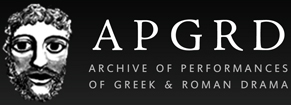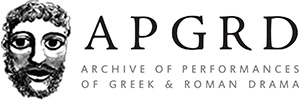The classics are those books about which you usually hear people saying: “I’m rereading…”, never “I’m reading….”
- Italo Calvino, Why Read the Classics (1991)
Please reserve your place on Eventbrite >
What makes a 'classic'? When considering the notion of 'classic literature' one might draw upon Calvino’s influential text (itself, ironically, now considered a 'classic'...) and his suggested definitions for ascribing such a weighty and seemingly multivalent label to a literary work. Many of these definitions gesture to the idea that a) a 'classic' text implies re-readings, redolent with the aura of previous interpretations before an individual even glances at the first page, and b) a 'classic' text somehow maintains a slippery tenacity enabling it to persist across space and time, inviting while remaining untouched by the “pulviscular cloud of critical discourse” which emerges around it. Taking the nineteenth-century phenomenon of cultural commodification (and the advent of the mass market) as our starting point, we are interested in hearing how common perceptions of what constitutes a 'classic' have changed in parallel with socio-cultural and educational reforms, as well as what value – if any at all – the 'classic' can still hold for the modern general consumer. At a time when the term is being increasingly instrumentalized by the far right as a tool of 'nation branding' and populist identity building, does it still make sense to speak of something as 'classic'? What form could, or should, the 'classic' question take today?
Multiple voices both within and outside academia have and continue to wrestle with the illusory yet strangely necessary appellation of 'C/classic'. In certain disciplines and understandings this may be applied to particular groupings of works, e.g. the Vedic tradition, or the “Four Books and Five Classics” required of Confucian scholars. A received understanding of 'classical' antiquity gave rise to an entire discipline bearing that name, a grouping of select properties from the ancient Mediterranean interwoven with Humanistic values – a “trompe-l'œil” which in many quarters is attempting to dis-embroil itself from many of the readings picked up along the way. Longevity often enters into the conversation as a fundamental attribute: Horace famously defined an author as warranting the status of 'classic' when their work lives on in the collective imagination a hundred years later. Yet there is clearly more at play here: from Aulus Gellius to Frank Kermode, literary critics across the centuries have exposed the glaring power differential that underlies the works we label 'classical'. Critically, what is understood about a 'classic' text that denotes worth, and how does this intersect with canon formation (or, indeed, cultural gatekeeping)?
Programme for the day:
9:00 - Coffee and registration
9:30 - Introductory remarks: Caterina Domeneghini (Oxford) and Claire Barnes (Oxford)
9:50 - ‘Canonicity and ‘great books’ - Chair: Caterina Domeneghini (Oxford)
- Rowena Gutsell (Oxford): Understanding Poetry, Teaching Canonicity: Reading for Value in the Post-War US Academy
- Lauren Spohn (Oxford): “There are only 102 Great Ideas”: Mortimer Adler’s Syntopicon and the Quest to Catalogue the Classics
10:45 Aesthetics of the ‘Classic’ and music - Chair: Caterina Domeneghini (Oxford)
- Yanxiao He (Chicago): Pantomimic Narcissus: From Roman Theater to East Asian Media
- Vignesh Hampapura (Oxford): An Aesthetic Education in Declassicalisation
11:40 Coffee
11:55 Keynote: Professor Glenn Most (Chicago; Scuola Normale Superiore, Pisa): What Is a Classic Text?
Respondent: Professor Constanze Güthenke (Oxford)
12:45 Lunch (provided)
13:45 Peripheries and Centres - Chair: Claire Barnes (Oxford)
- Audrey Southgate (Oxford): Making Mature Art: T. S. Eliot on the Definition of a Classic
- Eliza Browning (Oxford): Revision Against Censorship: A Genetic Reading of Nightwood’s Queer Gothic Prose
- Mosa Molapo (Oxford)
14:55 Coffee
15:10 Antiquities in motion - Chair: Claire Barnes (Oxford)
- Constance Everett-Pite (Oxford): Dancing around the classic in the poetry of Ilya Kaminsky
- Marianna Leszczyk (Oxford): The Dream of Authentic Connection: Zbigniew Herbert’s Personal Canon of Western Culture
16:05 Theories of the canon - Chair: Dr Giovanna Di Martino (UCL)
- Angelica Rossi-Hawkins (Oxford): Care as Intervention: Rethinking Canonicity from the Perspective of Maintenance Art
- Leslie Wong (KCL): Classics and the Canonical: Thoughts on the Tortured Terrain of Terminology
17:00 Roundtable - Chair: Professor Fiona Macintosh (Oxford)
18:00 Drinks and nibbles
Registration
Please reserve your place on Eventbrite >
Call for papers
We invite proposals that broadly touch upon the following strands, and ask workshop participants to consider how the 'classic' operates within their own work at both a local and interdisciplinary level:
-
The 'classic' in popular culture: what do we mean by 'popular' vs. 'highbrow' literature and culture, and how has the concept of 'classic' contributed to orienting these debates over time? Is there a way to consume classics responsibly, without buying into exclusionary narratives or signifiers of cultural capital?
-
Canonicity and authenticity: What happens when notions of the 'classic' are understood as representing “originary authenticity”, or authenticity-as-heritage? How does the authentic self as a commercial property operate in relation to the appellation of the 'classic', and in canon formation? We anticipate that the cultural cachet invoked in receptions (or indeed consumptions) of classical antiquity will be of relevance here, along with tensions between the original and the copy.
-
The past and its legacy (including education): the increasing marginalisation of, e.g., Greek and Latin literature and languages in favour of a more diversified curriculum in Britain and beyond; the advent of Modernism with its motto “Make it new” vs. public defences of the value of classical antiquity and the necessity of its revival/survival; the rise of 'world literature': do 'classic' criteria speak to the planetary system of literature that has been created as a result of globalisation, or do they stand in contrast to it?
Please send a short abstract (c.250 words) and name/stage/affiliation to the organisers at and by Wednesday 30 November 2022.

